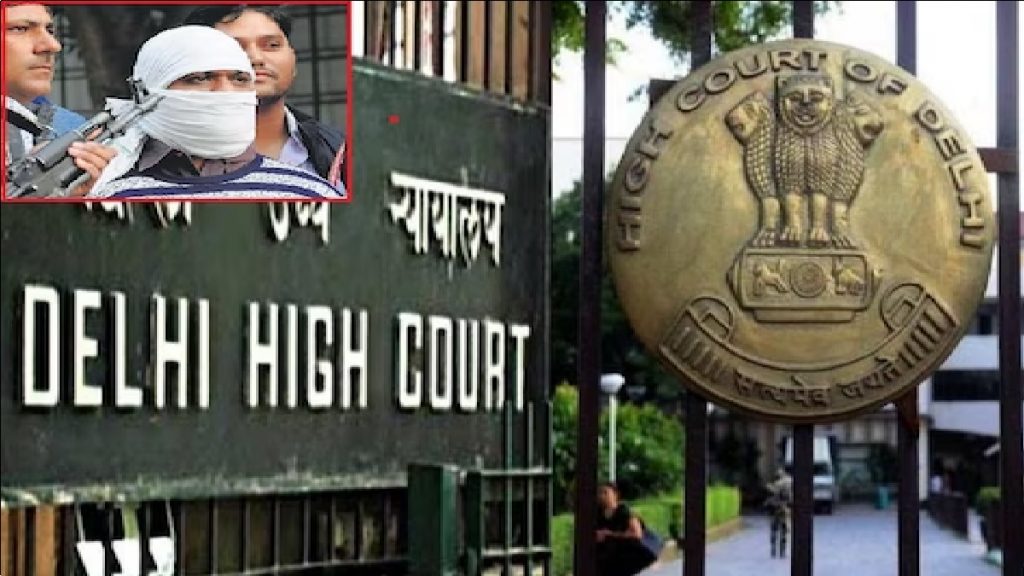New Delhi: The Delhi High Court on Thursday commuted the death penalty awarded to Ariz Khan to life imprisonment in the Batla House Encounter case in which Delhi Police Inspector Mohan Chand Sharma was murdered.
The Court refused to confirm the death penalty awarded by the Trial Court in a judgement passed in 2021.
However, the bench of Justice Siddharth Mridul and Justice Amit Sharma upheld the conviction against Ariz Khan passed by the Trial Court. The bench accordingly disposed of the reference for confirmation of the death sentence awarded to Ariz Khan.
The sentence of the death penalty was given to Khan by Delhi’s trial court for the murder of Delhi Police Inspector Mohan Chand Sharma on August 18, 2023, the bench of the Delhi High Court kept the order reserved after hearing all sides.
In March 2021, the trial court awarded Ariz Khan a death sentence in the matter. Another convict, Shahzad was awarded a life sentence.
Batla House encounter case: Delhi High Court commutes the death penalty awarded to Ariz Khan to life imprisonment. Khan was sentenced to death penalty by trial court for the murder of Delhi Police Inspector Mohan Chand Sharma
— ANI (@ANI) October 12, 2023
Later, both convicts challenged their conviction and sentence. Shahzad, however, died in jail during the pendency of the appeals, and the proceedings against him were abated.
While arguing for the state, the additional public prosecutor (APP), Rajesh Mahajan, submitted that the convicts were present in the flat at the time of the Batla House encounter. He also submitted that it is a case of the murder of a police officer while discharging his lawful duty, and this crime shook the conscience of society.
“It is the rarest of rare cases. Both Shahzad Ahmed and Ariz Khan deserved the death sentence. There is sufficient evidence and a statement of witness to this effect”, he noted.
He also argued that there was no chance of reforming Ariz Khan.
On the other hand, advocate MS Khan, counsel for Ariz Khan, argued that the conviction in this case was bad in law as the trial court did not appreciate the material facts of the case.
He also argued that the appellant was neither present at the flat nor had he absconded.
The counsel for the appellant, Ariz Khan also disputed the recovery of documents related to him. He said that if these documents were recovered from the flat, why did this fact not come to the knowledge of the investigation officer until 2014?
Advocate Khan also referred to the report of the inspection of the site by 11 forensic experts, which stated that there were no bullet marks on the sides of police personnel standing in the flat. But there were bullet marks on the side of the accused standing. It shows that there was one-sided firing from the end of the police.
He also argued that, as per the prosecution Ariz had escaped to Nepal. He got married there and was teaching at a school there. It shows that he has already been reformed. In these circumstances, his appeal should be allowed.
A trial court had convicted and sentenced him to life imprisonment for the murder of Inspector Mohan Chand Sharma, who was leading the police team during the Batla House encounter. It was alleged that the terrorists opened fire on Delhi Police personnel.
The counsel for the convict also produced some photographs depicting the adjacent buildings to L18. The counsel for the convict also argued that the other buildings were high under iron grills and there was no route to escape.
According to Delhi police, Shahzad and Ariz had escaped from the spot and were arrested later. Later, convict Ariz Khan was arrested, and a supplementary charge sheet was filed against him. After the trial, the court held him guilty and awarded him a death sentence.
The team of special cell of Delhi Police had reached in the Batla House area on inputs to nab the Indian Mujahideen operatives who were involved in the serial blast of September 13, 2008, in Delhi.

